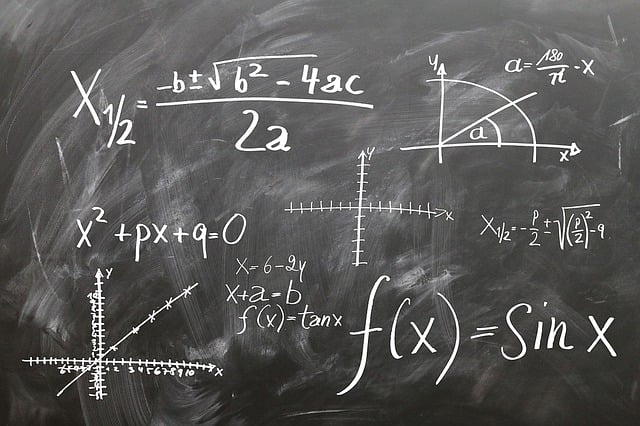How to Prepare for the ACT Math Section

Nearly all students preparing for the ACT with Method Learning request help with the Math section. Many of these students are intimidated by the section’s strict timing—60 minutes to answer 60 questions—and the advanced concepts that appear toward the end of the section. Moreover, many lack confidence because, as they tell us, they are “not a math person.” Disregarding the fact that there is no such thing as “a math person,” the ACT Math section, much like the rest of the exam, is predictable, which means students who prepare can make some serious improvements! But what can students do to prepare? Here are a couple of tips that students of all skill levels can implement to create an effective study plan.
Tip # 1: Have a plan!
Athletes don’t step on the field without a game plan; pilots don’t take off without a flight plan; students shouldn’t approach the ACT Math section without a “test plan.” Two of the most important elements of your test plan should be question selection and timing.
As is the case for all sections on the ACT, the Math section is fully multiple choice with all questions of equal value. Unlike in other sections, however, the Math presents questions in order of difficulty, moving from easy to hard on average. Therefore, I advise students to be mindful of their pacing and time in practice, encouraging them to note if/when they run out of time or whether there is a point in the section at which they consistently begin to struggle. Consider a student who is able to answer all 60 questions in 60 minutes but notices that he or she consistently answers only two or three of the final 12 questions correctly and also commits a number of errors earlier in the section. This student should carefully reconsider the value of those last 12 questions, which are, on average, substantially more difficult than earlier questions and take longer to solve. It might make more sense for the student to allocate more time to questions earlier in the section in order to maximize the number of points on easier questions and to simply guess on the final twelve, where random chance would be expected to yield two or three correct answers.
case for all sections on the ACT, the Math section is fully multiple choice with all questions of equal value. Unlike in other sections, however, the Math presents questions in order of difficulty, moving from easy to hard on average. Therefore, I advise students to be mindful of their pacing and time in practice, encouraging them to note if/when they run out of time or whether there is a point in the section at which they consistently begin to struggle. Consider a student who is able to answer all 60 questions in 60 minutes but notices that he or she consistently answers only two or three of the final 12 questions correctly and also commits a number of errors earlier in the section. This student should carefully reconsider the value of those last 12 questions, which are, on average, substantially more difficult than earlier questions and take longer to solve. It might make more sense for the student to allocate more time to questions earlier in the section in order to maximize the number of points on easier questions and to simply guess on the final twelve, where random chance would be expected to yield two or three correct answers.
It’s also important for students to plan their problem solving approaches. Should a student simply plug in answers whenever possible? What should the student do when encountering a word problem? How should the student approach unfamiliar geometry? The answers to these questions vary by student. By developing systems beforehand, students can limit the amount of time spent trying to figure out “where to begin” and approach each question with confidence.
Tip # 2: Use the 80/20 rule in studying.
The 80/20 rule, also known as the Pareto principle, posits that for many events, approximately 80% of results are the effect of about 20% of causes. While this ratio doesn’t hold perfectly for the ACT Math section, its overarching idea remains valid. There are over 25 different topics tested in the section, each capable of being presented in various ways; this leads to a formidable amount of content for students to remember. However, not all of these topics appear with the same frequency as the others! While the ACT Math section may contain questions on topics such as sequences, matrices, vectors, logarithms, and complex numbers, those topics rarely make up more than two or three questions on each exam in total. By comparison, questions on topics such as linear equations, systems of equations, ratios, percentages, and plane geometry are tested so frequently that they can sometimes make up nearly half of all questions on the section! Students can maximize the impact of their prep by studying and mastering a small number of topics that account for a large portion of their scores before focusing on other topics that are tested less frequently.
Tip # 3: Practice mindfully.
 Everyone knows that practice makes perfect—but a more realistic adage might be “practice helps make perfect.” Ask any person at the top of their field: the simple act of repeating an action takes one only so far; the practice must also be deliberate and mindful. When practicing for the exam, students should begin each session with a particular goal in mind, track their results, and use those results to develop a plan for the next practice section. I often tell my students to engage in two different aspects of practice for the ACT Math section: time/strategy sessions and content-specific sessions. For timing/strategy sessions, students must time themselves and implement different strategies with the goals of improving speed, identifying timing issues, and determining which tactics yield the best results for them. For content-specific practice, timing becomes less relevant and students focus on questions specific to the content areas they wish to improve rather than on working through a section in which topics appear at random. In both types of sessions, students should always mark any questions they answer incorrectly or struggle with. Once those questions are identified, students can identify what types of mistakes they made.
Everyone knows that practice makes perfect—but a more realistic adage might be “practice helps make perfect.” Ask any person at the top of their field: the simple act of repeating an action takes one only so far; the practice must also be deliberate and mindful. When practicing for the exam, students should begin each session with a particular goal in mind, track their results, and use those results to develop a plan for the next practice section. I often tell my students to engage in two different aspects of practice for the ACT Math section: time/strategy sessions and content-specific sessions. For timing/strategy sessions, students must time themselves and implement different strategies with the goals of improving speed, identifying timing issues, and determining which tactics yield the best results for them. For content-specific practice, timing becomes less relevant and students focus on questions specific to the content areas they wish to improve rather than on working through a section in which topics appear at random. In both types of sessions, students should always mark any questions they answer incorrectly or struggle with. Once those questions are identified, students can identify what types of mistakes they made.
It is also important to note that students should be wary of “copping-out” on small errors. Students often view mistakes such as misreading the question, solving for the wrong variable, or basic arithmetic errors as “silly mistakes” that they won’t make on the day of the test. This is akin to a wide receiver telling his coach, “Don’t worry! I know I keep dropping the ball in practice, but I’ll just make sure I catch it on Sunday”. Instead, students should ask questions like “Why did I misread the question?” and then develop specific plans (like underlining what the question is specifically asking for) to address and resolve the issues.
Though preparing for the ACT Math section can seem like a daunting task even for most experienced students, it is a challenge that can be conquered by all students with proper planning and the right outlook. By creating an effective study plan, students can simplify the overwhelming content, track the results of their efforts, and reach their full potential.
For more study tips, as well as information on the tutoring, prep classes, and news on the ACT and SAT, be sure to check out methodlearning.com and subscribe to our blog.


